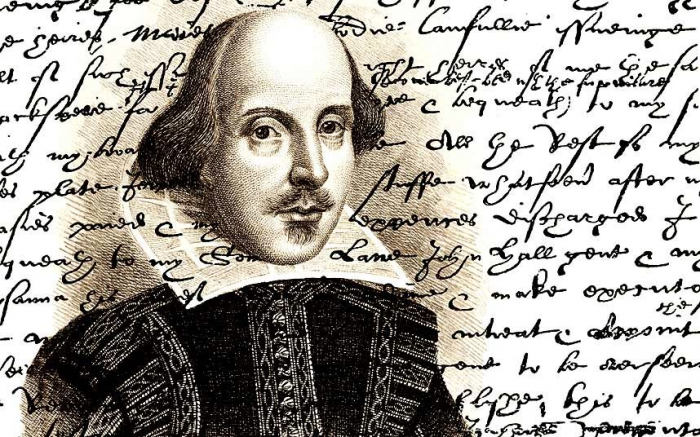
Kiss Attila
|
az oktató és a kurzus adatai |
|
|
a kurzus címe |
Renaissance English Literature with Its Medieval Roots |
|
az oktató neve |
Kiss Attila |
|
az oktató beosztása |
tanszékvezető egyetemi docens |
|
az oktató tanszéke |
Angol Tanszék |
|
az oktató ímélcíme |
kiss_a_m@yahoo.com |
|
az óra helye |
BTK Kristó terem |
|
az óra időpontja |
péntek 10:00 |
|
a kurzus leírása |
|
|
rövid (300–500 karakteres) szöveges leírás |
These lectures will provide students with an outline of the major achievements in the history of English literature before the Restoration, with a focus on the development of English drama. The course will focus on problems of interrelationships between literature, dramatic art, theatricality, and the dominant cultural, political, representational discourses that informed the progress of specific modes of dramatic expression. Special emphasis will be laid upon genre-generating factors, the logic of staging and actual forms of theatricality, the problems in historical reconstruction. |
|
részletes (hetekre bontott) tematika |
1. The beginnings of English literature. Langland, Chaucer. Medieval, classical and popular origins of English drama. Drama as social expression and literary genre. Preliminary problems in the semiotics of drama. 2. English Renaissance drama and Elizabethan theatricality. Problems in the typology of Renaissance culture. The logic of the emblematic theatre. The "founding fathers": Kyd and Marlowe. 3. Shakespeare: the indeterminacies of poetic drama. The chronicles and the comedies. 4. Shakespeare: the tragedies and the romances. Shakespeare revised: new historicism, deconstruction, decanonization. 5. Renaissance poetry, romance, the Petrarchan tradition. 6. The "contemporaries" and "the decadence of the Jacobean stage." Jonson, Chapman, Webster, Heywood, Middleton, Marston. From emblematic to photographic theatre. 7. Metaphysical poetry.
|
|
olvasmányok, kiegészítő anyagok |
|
|
a kurzus Coospace vagy Google Classroom támogatással folyik-e (kérjük, írja be, melyikkel) |
Coospace |
|
kötelező olvasmányok (ha vannak) |
Everyman, Kyd The Spanish Tragedy, Marlowe Doctor Faustus, Shakespeare Richard III, A Midsummer Night's Dream, Measure for Measure, Hamlet, Macbeth, The Tempest, Jonson Volpone, Middleton The Revenger's Tragedy, Webster The Duchess of Malfi, and selected poetry. |
|
ajánlott olvasmányok (ha vannak) |
BRADBROOK, M.C. 1969. Themes and Conventions of Elizabethan Tragedy. Cambridge: Cambridge University Press.
DE GRAZIA, Margreta – Stanley Wells eds. 2001. The Cambridge Companion to Shakespeare. Cambridge: Cambridge U.P.
DOBSON, Michael – Stanley Wells eds. 2001. The Oxford Companion to Shakespeare. Oxford: Oxford U.P.
DUTTON, Richard - Jean E. Howard eds. 2003. A Companion to Shakespeare’s Works, Volume I: The Tragedies. Oxford: Blackwell.
GAY, Penny, 2008. The Cambridge Introduction to Shakespeare’s Comedies. Cambridge: Cambridge University Press.
GURR, Andrew, 1980. The Shakespearean Stage 1574-1642. Cambridge: Cambridge U. P.
KISS, Attila, 2010. Double Anatomy in Early Modern and Postmodern Drama. [Papers in English and American Studies XX. Monograph Series 9.] Szeged: JATEPress.
McALINDON, Thomas, 1986. English Renaissance Tragedy. London: Macmillan.
McEACHERN, Claire, 2002. The Cambridge Companion to Shakespearean Tragedy. Cambridge U.P.
SHAKESPEARE, W. 1972. The Riverside Shakespeare. ed. G. Blakemore Evans. Boston: Houghton Mifflin Co. (see introductions to the plays!)
TILLYARD, E.M.W. 1946. The Elizabethan World Picture. London: Macmillan.
WEIMANN, Robert, 1978. Shakespeare and the Popular Tradition in the Theater. Baltimore: The Johns Hopkins University Press.
|



